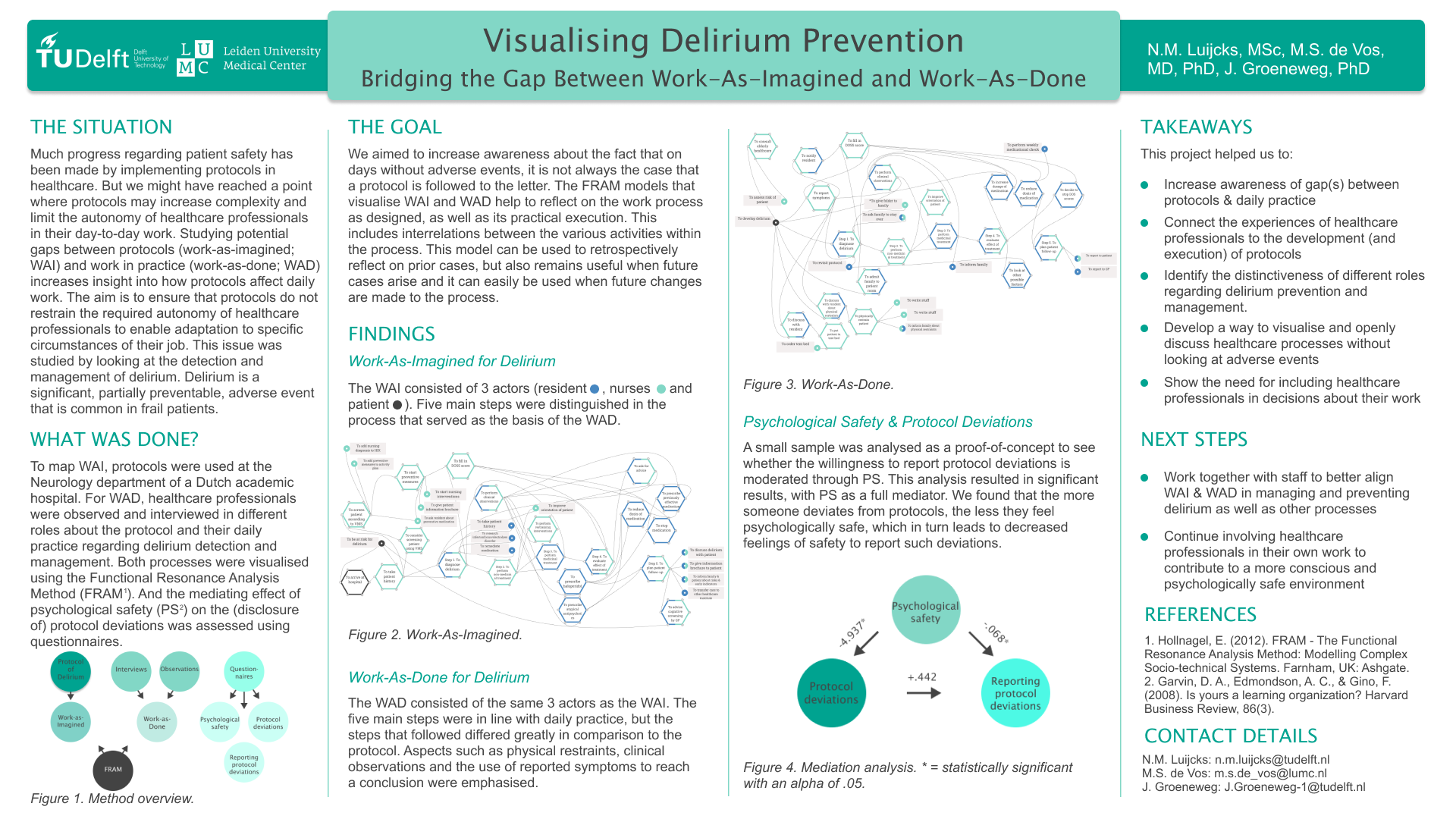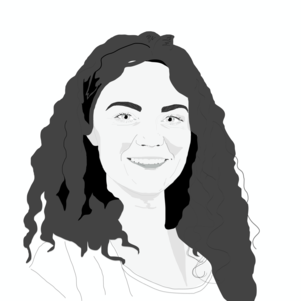A Leap of Faith
10 September 2021
Are you familiar with the feeling of taking a leap of faith? Well, that’s what I chose to do when I walked into a hospital as a cognitive psychology student. Not as a patient, but as a researcher. I did not want to do a theoretical laboratory study in the basement of our faculty. I wanted to know the ins and outs of a real organisation. And what is a better challenge than the complex environment of a hospital?
I researched how healthcare professionals do their work. We examined the differences between the described ways in protocols and the actual daily clinical practice. Our goal was to examine why healthcare workers deviated from the protocol, not to punish or correct their actions, but to understand why they did so.
Our position is that people deviate from protocols for a reason. High work or time pressure, or just because there is another, better way to perform the task, are a few examples. And each patient is different. Following a protocol to the letter is not always the best solution. Don’t get me wrong, using protocols to standardise working processes has had a positive impact on patient safety. But it also limits the autonomy of the healthcare worker to provide the best care to the patient.
For this research, we looked at the process of delirium. Delirium is a state of confusion that can occur in patients under physically stressful conditions, such as after surgery. It’s like lucid dreaming, but then while awake. Often this occurs in older, more frail people. Through conversations with healthcare workers, but also from advisory reports, it became clear that delirium is a common problem. And, that diagnosing delirium can be difficult or is even left undiagnosed, with negative consequences to the patient.
As a first step, we mapped the protocol by dissecting it into clear steps and mapping their connections. Next, we observed the professionals at work. We participated in multiple shifts to learn how they dealt with delirium at their department. Of course, students are never asleep, but still, I really had to get used to being in the hospital during night shifts. We were told that we were unlucky with the shifts we attended because it was so quiet. This differed quite a bit from day-to-day. And they just had had a very hectic time, in which they were running from patient to patient and barely had time to do their administrative work. The shifts we attended were more serene. For our research, this was beneficial, because the healthcare workers could take the time to explain their work processes.
Apart from observations, we interviewed numerous staff. At first, I was concerned that they would not trust us enough to tell us about their work. But this proved completely unnecessary. One by one they told us all about their own experiences with delirium and other work. The conversations were very open and comfortable. And this helped us put the puzzle pieces together and assess the working processes around delirium.
Broadly speaking, protocol and practice matched. However, it became clear that there was more interaction between nursing staff and physicians than was suggested by the protocol. As well as that ‘evaluation’ came back in every step of the process and that several actions were executed more often in reality than was written in the protocol. These actions entailed reporting symptoms, clinical observations, but also the application of physical restraints to ensure the safety of the patient. In other words, staff deviated from protocols to provide the best care to their patients.
A next step for the future would be to come together with healthcare workers and see why these deviations occur. Their insights are highly valuable and it is important to discuss these insights. About what goes wrong, but also about what goes right. Because you can learn a lot from both situations. And learning is what I did. After this thesis, I chose to add four more years of research to further investigate these working processes. The leap of faith as a psychologist into the fascinating world of healthcare has had its benefits.
This research was also presented by Marit de Vos, Jop Groeneweg and myself at the BMJ International Forum of Quality & Safety in Healthcare. Check the poster below.


